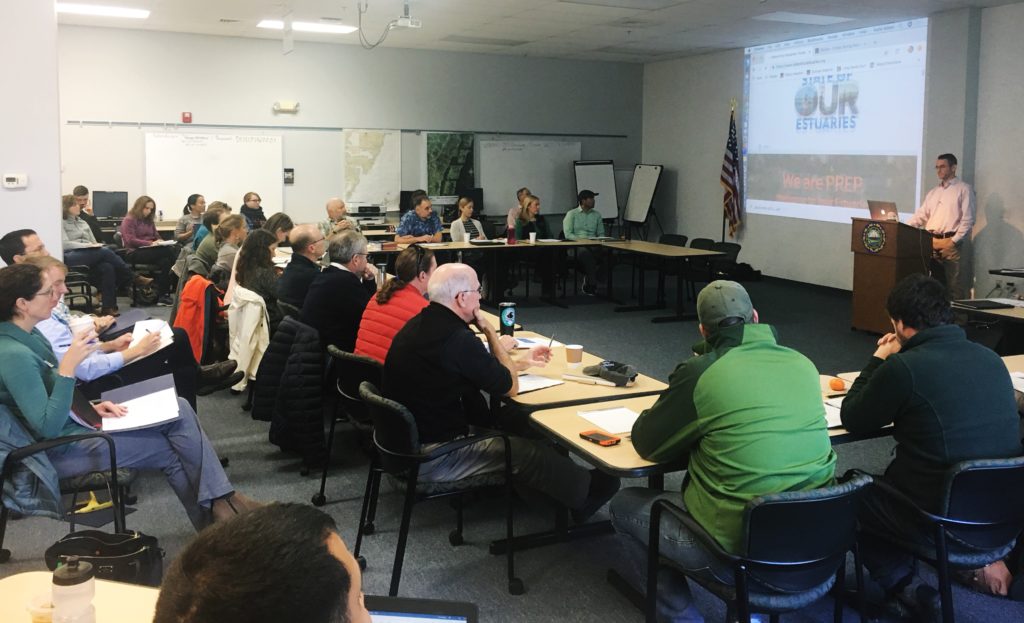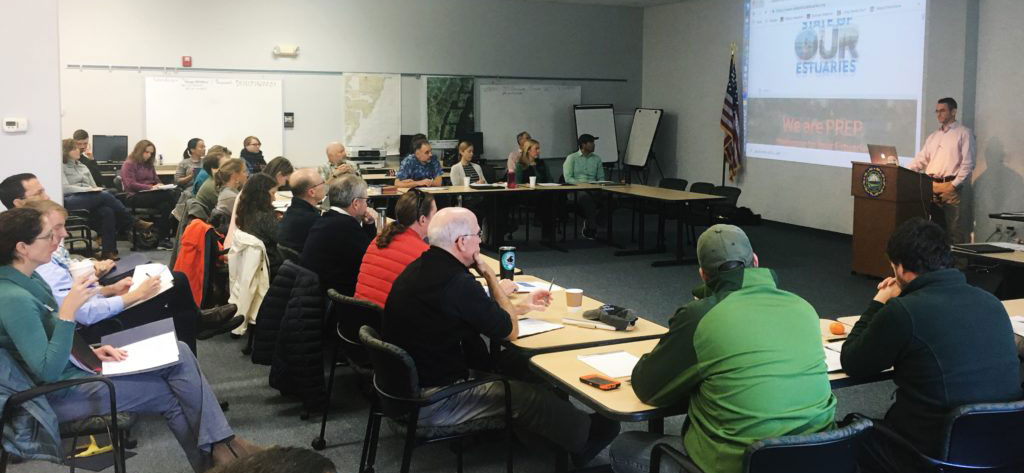
Based on a key recommendation from the October Technical Advisory Committee meeting, we will now begin using smaller workgroups as a mechanism for focusing our work. Our first workgroup will be focusing on the Piscataqua Region Monitoring Collaborative (PRMC) and the first meeting will be held on March 28th from 1:00 to 3:30. Location is yet to be determined, so please visit the workgroup website a week beforehand to find out more details (https://prepestuaries.org/prmc-workgroup/).
Co-chairs for the PRMC workgroup are Ted Diers, NH Department of Environmental Services, and Jennifer Perry, Public Works Director for the Town of Exeter. The purpose of the PRMC workgroup is to discuss existing environmental monitoring programs in the Great Bay and Hampton-Seabrook estuaries and watersheds and to share upcoming opportunities and challenges. More specifically, the charge of this group is to better coordinate collection, analysis, storage, and dissemination of water quality data pertinent to the health of the Piscataqua Region estuaries; and to clarify and confirm what management questions are being answered by the data currently being collected.
PREP will be setting up additional workgroups in the future for other topics of concern including bacterial indicators, sediments, research proposals, index of biological integrity, and social science questions emphasizing why people value estuarine health: all ideas that were brought up in the October 2018 meeting.
Since more of the focused work will be done through these workgroups moving forward, the “Full TAC” will not need to meet as often. Accordingly, we anticipate that the next full TAC meeting will occur in the summer of 2019. The purpose of the full TAC meetings will be to address the following items:
1. Hear updates and recommendations from topic-specific ad hoc workgroups
2. Agree on moving recommendations forward to PREP Management Committee
3. Review and discuss data and data analysis specific to State of Our Estuaries indicators
4. Identify timely, regional issues of concern or opportunities to collaborate effectively.
Please stay tuned for updates. And, as always, please email Kalle Matso (Kalle.Matso@unh.edu) with any questions or thoughts.

